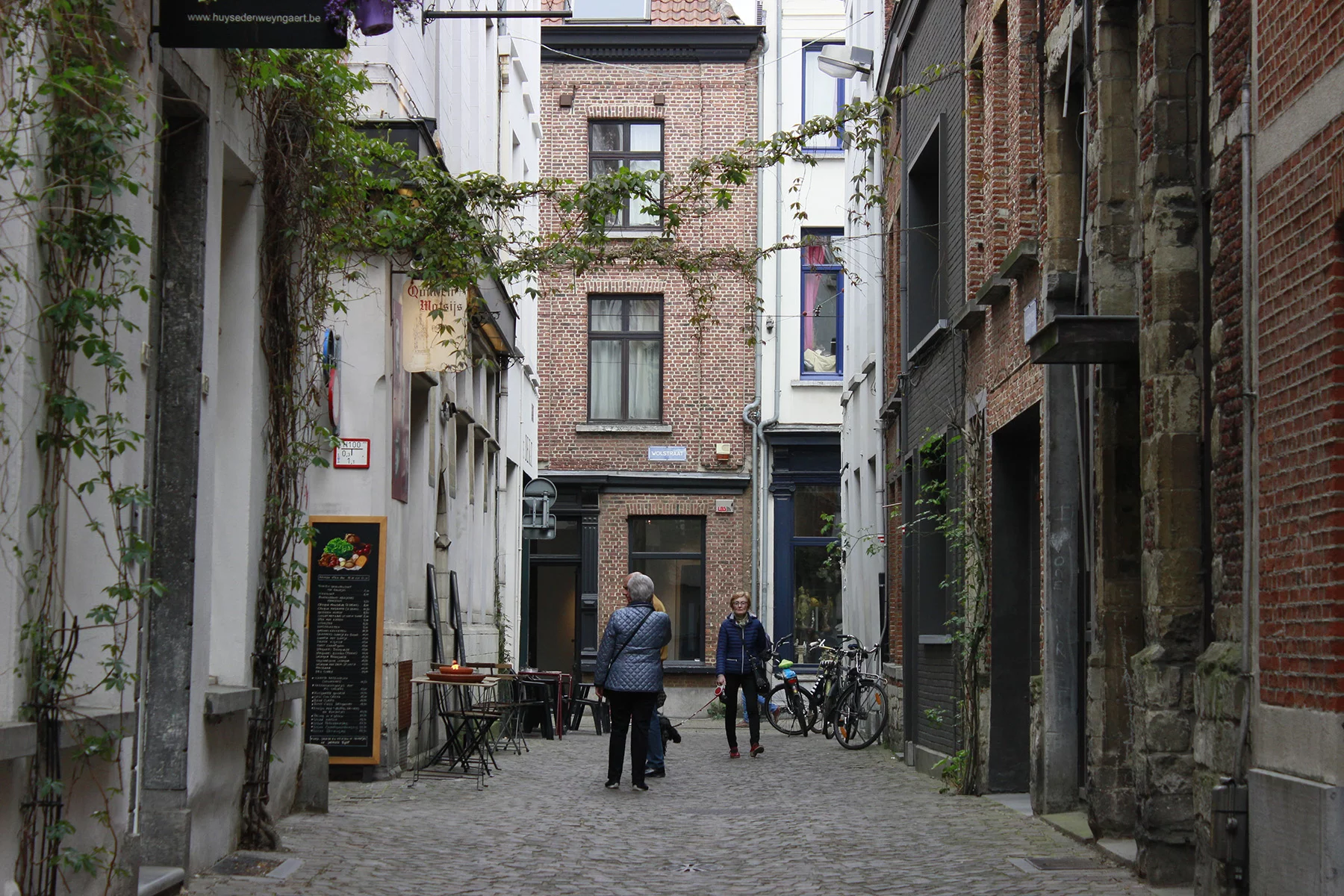Investing money is a great way of providing for your future. However, it’s important to come up with a sound plan and look at the various different options from pensions in Belgium to buying property in Belgium to opportunities on the financial market.
This guide to investing in Belgium includes sections on:
- Investment in Belgium
- Savings account investments in Belgium
- Pensions investments in Belgium
- Property investments in Belgium
- Business investments in Belgium
- Investment funds in Belgium
- Investing in stocks and shares in Belgium
- Offshore investing in Belgium
- Other forms of investing in Belgium
- Tax on savings and investments in Belgium
- How to invest wisely in Belgium
- Investment advice in Belgium
- Useful resources
MeDirect
Get more from your money with MeDirect. This Belgian savings and investment bank is home to financial experts who can help you expand your investment portfolio and track your stocks and shares. Enjoy in-app accessibility and let your money work for you with MeDirect.
Investment in Belgium
Belgium has an open economy with a range of investment options open to any resident, as well as some for non-residents. The country benefits from economic freedom, with a stable economy, an open market, and a high level of investor freedom. However, income tax levels are high; as a result, it’s important to plan effectively if you are to get the most out of investing in Belgium.
Savings account investments in Belgium
Savings accounts are a popular way of investing in Belgium. Although, as with other countries, they typically offer lower returns as the risks are much lower. Most banks in Belgium offer a free range of savings account options; some may require a minimum deposit, though. Accounts are often available to non-residents, as well. The way money is earned on savings accounts is through interest accrued, which in Belgium is currently up to 0.35% with a set tax-free allowance.
Banks in Belgium that offer savings account options include:
See our guide on how to open a bank account in Belgium for information on requirements and processes.
Pensions investments in Belgium
The Belgian pension system has a three-pillar pension system, with a mandatory state pension supplemented with optional occupational and private pensions. Private pension plans in Belgium are available through banks and life insurance companies. They typically offer higher interest rates and higher returns than savings accounts. They have tax advantages of between 25-30% on investments, although there are normally annual fees. Plans receive protection from the government up to a value of €100,000 in the event of bankruptcy or non-payment on returns.

With pension savings plans, you can decide how much you want to pay into the plan and when. Tax credits are available of 30% on investments of up to €980 a year and 25% on investments of up to €1,260. There are two types of private pensions investment plans in Belgium:
- Pension savings fund (pensioenspaarfunds) – payments are invested in mutual investment funds consisting of shares, bonds and cash. These funds offer higher long-term returns but are higher risk and there is no protection or guarantee.
- Pensions savings insurance plan (pensioenspaarverzekering) – you accrue interest through a “branch 21” type savings insurance policy at the fixed interest rate each time you make a deposit. With some policies, you also receive a share of company profits if it performs well.
Property investments in Belgium
After an early 21st-century housing boom, Belgium’s property market has slowed down in recent years. Real estate investors can benefit from relatively low property prices compared with Belgium’s neighboring countries as well as low mortgage rates in Belgium. Transaction costs and property-related taxes are high, however. There are no restrictions on expats making property investments in Belgium; money can be made through property sales and buying to rent the property in Belgium. House prices continue to rise although the market is slowing down, with Belgium’s house price index rising by 2.6% towards the end of 2018. Gross rental yields on apartments and houses range from 4.46–5.53%.
The current average price for a semi-detached house in Belgium is €195,000. The most expensive region is Brussels, where the average price is €365,000. Flanders sits in second (€225,000) with Wallonia (€137,000) bringing up the rear.
Business investments in Belgium
Belgium is a good place for starting up or investing in business. It has no trade restrictions, good connections to the rest of Europe, a thriving entrepreneurial environment, and more than 500 million consumers within a radius of 800km. If you are looking to start a business in Belgium, the process is fairly straightforward. For larger-scale investments, the Belgian government has a business investment portal with information and links to the regional investment agencies.
Investment funds in Belgium
Investment funds pool the money of investors and invest it according to set financial strategies. This is a more high-risk and high-cost form of investing but can yield better returns. Those interested in investing in Belgium can choose from a range of investment funds with banks or independent fund brokers. Funds can be public (such as mutual funds) or private (such as hedge funds). Some of the funds available in Belgium are:
- Exchange-traded funds (ETF): also known as tracker funds, ETFs are a type of mutual fund indexed to the stock exchange. They can combine various different assets, are low-cost and easy to trade, but offer no guarantee of a return.
- Equity funds: also known as stock funds, these are another type of mutual fund that invests principally in stocks and shares. They generally offer long-term growth through capital gains.
- Bond funds: also known as debt funds, these mutual funds invest in bonds and other debt instruments, paying periodic dividends such as interest payments.
- Mixed funds: funds that invest in a combination of shares and bonds.
- Hedge funds: private investment funds only open to a limited number of investors. They offer higher returns but are more costly, are subject to fewer regulations and involve greater risks.
Fees, investment amounts, and likely returns for investment funds vary according to fund type and provider. As a result, it’s a good idea to research the most suitable options. Unless you have experience with investment funds and investing in Belgium, it’s advisable to speak to your bank’s investment fund manager or a qualified financial advisor before deciding how best to invest.
Investing in stocks and shares in Belgium
As well as investing in stocks and shares through third-party investment funds in Belgium, you can also buy and sell shares directly through the Belgian stock market. Anyone can buy shares in publicly listed companies on the Belgian Stock Exchange. The main stock exchange in Belgium is Euronext Brussels where you can find out information on current share prices for Belgian companies. The stock market in Belgium is regulated by the National Bank of Belgium and the Financial Services and Markets Authority. Belgium’s stock market index is the BEL20 which has increased by 19.13% since the start of the year.
If you’re interested in stocks and shares and looking to set up your own investment portfolio, check out a local investment bank. The following Belgian banks can help you with your investments, no matter your experience level:
You can buy and sell shares in Belgium by setting up an online account with MeDirect or through a provider such as a Belgian bank. Fees associated with trading in stocks and shares can include transaction fees and monthly account fees as well as taxes, so check this upfront with the provider.
Offshore investing in Belgium
Belgium offers a number of offshore banking opportunities to expats and companies based in the country. Offshore banks offer flexible money arrangements, some services not available through domestic banks, and tax advantages on savings. However, they tend to be more expensive and generally require larger investments than regular banks. See the Expatica guide to offshore banking for more information.
Other forms of investing in Belgium
Other forms of investing in Belgium include:
- Government savings certificate – this is a bond issued by the Belgian government which can be purchased by residents. The bond has an annual fixed coupon in euros. 100% of invested capital is paid out (minus transaction fees) upon maturity.
- Commodities – you can invest in commodities such as oil, gas, gold, or silver directly through commodity trading companies or through a number of investment funds that offer this.
Tax on savings and investments in Belgium
Generally speaking, your tax liability in Belgium varies depending on whether you’re considered a resident for tax purposes. Foreigners are considered tax residents if their main home or their main economic interests are in Belgium.
Residents of Belgium are taxed on worldwide income, while non-residents are only taxed on income originating in Belgium.
If you’re considered a non-resident for tax purposes, you’ll be taxed on income from investments such as bonds and shares in Belgium, but won’t need to pay tax on interest accrued from Belgian bank accounts or regulated savings accounts. Instead, you will need to declare any such income in your home country and pay tax there.
Taxes on savings in Belgium
The Belgian tax on savings income depends on the type of Belgian savings accounts taxpayers with resident status hold. There are two kinds of Belgian savings accounts: regulated and non-regulated. We advise you to speak to a professional tax advisor to learn about the differences between regulated and non-regulated savings accounts and how it affects the taxes you pay in Belgium.

Taxes on investments in Belgium
There is a general 30% withholding tax rate on income derived from investments in Belgium, such as interest and dividends, plus a tax on stock exchange transactions. On regulated savings accounts, the first €940 is exempt from tax with anything above this taxed at a rate of 15%. Tax on stock exchange transactions range between 0.12% to 1.32% per transaction. For those who invest in buy-to-let property, current tax on rental income in Belgium is between 25-50% (depending on income bracket).
For more information on tax, see the Expatica guides to taxes in Belgium.
How to invest wisely in Belgium
Diversify your investments
To get the most out of investing in Belgium, it pays to shop around and look at building a portfolio. “The investment portfolio theory says that the diversification of your investments should not only lead to a higher return on your portfolio but also to a lower risk profile in the long term” says Dave Deruytter, head of expatriates at ING Belgium. “Therefore putting all your money in one asset may not be the best of options. This applies to real estate investment too. A direct investment in one real estate asset, an apartment for example, is illiquid and not diversified as compared to a real estate investment fund, investing in many different real estate assets.”
Invest according to your risk profile and time horizon
“It is important to know who you are as an investor before deciding on the allocation of investment money. Banks and financial advisors must study your risk profile, knowledge, and experience of the different financial products, how you would react to a fall in the value of an asset and, importantly, how long you can do without the money” explains Dave.
“Eventually you will be categorized as a secure, moderate, balanced, dynamic or aggressive investor. The first type of investor, the ‘secure’ one, could be someone with 100% of his or her assets on savings accounts, the latter, the ‘aggressive’ one, with 100% on the stock market or even a part in derivative financial products.
Both your risk profile and your time horizon will change with age or time. A yearly update of your investor profile is thus useful.”
Measure your investment opportunities
“It is important to shy away from investment offers that are too good to be true” warns Dave. “Either you missed the catch in the small print of the dream deal, or someone is trying to steal your money.”
This is why it always pays to thoroughly check investment opportunities out, only use regulated services and seek advice from a professional if you are not sure.
Don’t borrow to invest
Investment in Belgium, as with anywhere else, should be about trying to grow your surplus income, not digging yourself a hole of debt. “Investment is a risk activity and it should be highly discouraged to borrow to invest in risk assets. It shouldn’t feel like betting the house” says Dave.
Investment advice in Belgium
Most Belgian banks and financial institutions have investment advisors who can be contacted by appointment. Unless it is an advisor with your own bank, you will probably have to pay for the service. You can search the Expatica directory to find details of financial services and advisors. Another option is to get expat advice from your national chamber of commerce in Belgium, for example the British Chamber of Commerce in Belgium or the American Chamber of Commerce in Belgium.
ING Belgium provides expert advice to expats living in Belgium on investment as well as a range of other money management matters.
Useful resources
- Financial Services and Markets Authority – regulates the Belgian financial services market to ensure fair treatment of consumers
- National Bank of Belgium – website contains information and statistics about the Belgian economy.
- Euronext Belgium – the main stock exchange market in Belgium.
- Online investment plan calculator – allows you to calculate how much income you can generate with an investment plan.




